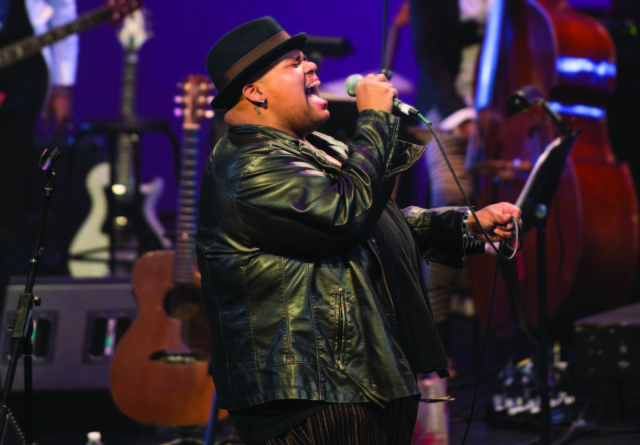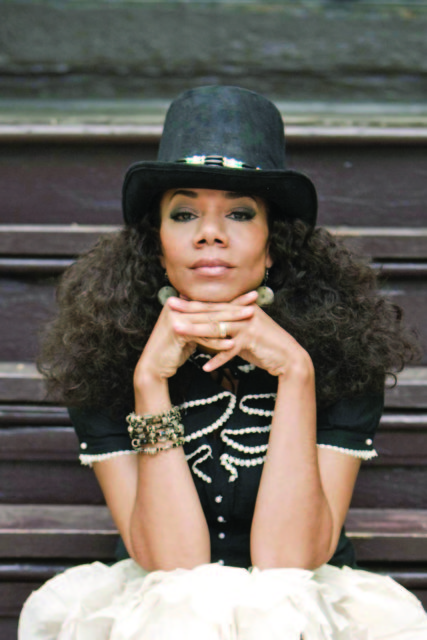
Thousands of women and allies will descend on our nation’s capital. July 7 and 8 for the Sisterfire Revival Festival. The multidisciplinary festival, hosted by the 51st annual Smithsonian Folklife Festival, commemorates the 40th anniversary of Roadwork, a platform for women artists and activists founded by Amy Horowitz and Dr. Bernice Johnson Reagon.
The festival includes two concerts – July 7th at the Kennedy Center for the Performing Arts and July 8 on the National Mall – with performances by Toshi Reagon, Martha Redbone, Holly Near, Urban Bush Women, and selections from the Bernice Johnson Songbook. The Folklife Festival’s Narrative Stage on the National Mall will also host poetry and spoken word performances on July 8, with more than 30 women artists performing between Sisterfire’s three events. The Sisterfire Revival Festival is free, ADA accessible, and includes American Sign Language interpretation.
Where did it all begin? In 1977, music producer Amy Horowitz met singer/songwriter and civil rights activist Dr. Bernice Johnson Reagon, and learned about her Black women a cappella music group, Sweet Honey in the Rock. At this first meeting, Reagon asked Horowitz to set up a West Coast tour for her ensemble.
Then, together, they founded Roadwork. The non-profit arts organization and multiracial coalition that represented Sweet Honey in the Rock and more than 30 other major groups, was designed to “put women’s culture on the road.”

Roadwork produced Sisterfire from 1982 to 1988 as a way to sustain the volunteer-led organization — their goal was to fundraise in response to deep financial cuts to the arts in America. Women’s music festivals in the 1970s-’90s broadly functioned as platforms for political activism and a means of community organizing in the pre-internet, pre-social media age, when word of mouth and direct mail were the only real ways to mobilize. Several other women’s music festivals existed by the time Sisterfire began, most of which provided safe, open spaces for women to gather. Sisterfire stood out because of its urban backdrop and openness to all genders.
Cultural expression in the 80s was ignited by activism around a number of social issues like women’s and LGBTQ rights, HIV/AIDS, and civil rights for African Americans. At that time, the Reagan administration aimed to steer the social narrative toward white, heterosexual, patriarchal norms by making cuts to the arts, attempting to silence artists who were making politically-charged work rooted in social justice and civil liberty.
Fortunately, artists have a way of making things work. Among many responses to the cuts, Sisterfire became known for inclusivity, providing access to feminist and lesbian music for anyone who wanted it. Sisterfire came on the scene at a time when women’s music was dominated by white women, providing a critical platform for artists of color who were underrepresented in the arts and other areas of the women’s movement. “Sisterfire was Urban Bush Women’s first performance outside of New York City,” says Jawole Willa Jo Zollar, artistic director and founder of the social justice-oriented dance company. “We got to be inside a women’s festival and community that gave us such validation of our nascent voice and vision in a supportive place at a very crucial time. That experience was powerful.”

“We embrace so many issues by virtue of the range of artists we represent and the range of their issues that we’ll never neatly fit into any one movement,” Horowitz told the Washington Post in 1982. Their mission continues to develop. In 2000, Roadwork shifted its focus away from artist booking and concert production to concentrate on art and culture in disputed territories. Horowitz, who earned her PhD in Folklore and Middle East Studies, views geopolitical conflict as encompassing sexism, racisim, homophobia, antisemitism and Islamophobia – issues that might be addressed through multiracial artist/activist coalitions working in areas of conflict.
“Roadwork was a rarity, and it still is a rarity,” says Sisterfire curator Toshi Reagon. Reagon, (featured in 100 Women We Love in this issue), a folk, gospel and blues artist who leads the band BIGLovely, is the daughter of Dr. Bernice Johnson Reagon and served as music director for the 2017 Women’s March in Washington, D.C.
In addition to these initiatives, Roadwork is collecting oral histories from the artists and activists who have been involved in Sisterfire over the years, leading up to a feature-length documentary film directed by award-winning director Yvonne Welbon, with an all-women team of filmmakers and producers. The film is anticipated to premiere in 2020, and will include documentation of the Sisterfire Revival Festival.
While the festival is about celebrating the past, those who have led Roadwork for the last 40 years are looking to the next generation of artists and activists to dream up something new. Millennials driving social movements like Black Lives Matter, Mijente, immigrant and indigenous rights coalitions and the evolution of the gay and trans rights movements are the future Roadwork envisions.

“I think of Dr. Reagon’s song based on the words of the great Mrs. Ella Baker,” says Horowitz. “‘The older I get, the better I know that the secret of my going on is when the reins are in the hands of the young who dare to run against the storm.’ Our job is to leave the trail about the work that we did. If it is of interest, the next generation artist and activists will create something that we may barely imagine. I will be cheering them on.”
For more information about the 40th Anniversary Celebration in DC: festival.si.edu/2018/sisterfire. For info on Roadwork and the oral history and documentary project, visit roadworkcenter.org.tival.si.edu/2018/sisterfire. For info on Roadwork and the oral history and documentary project, visit www.roadworkcenter.org.

What Do You Think?